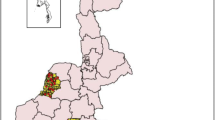Abstract
Animal welfare remains a contemporary issue in livestock development as World Organization for Animal Health stresses its importance in the livestock trade. Key elements of good animal welfare include animals being healthy, comfortable, well-nourished, safe, not suffering from unpleasant states such as pain, fear, and distress, and expressing behaviours that are important for their physical and mental health. These are important for the high performance of animals in terms of productivity and product quality. Given the importance of animal welfare in enhancing livestock productivity, quality, food safety, and economic returns, the study aimed to identify the aspects of animal welfare that need more attention among the Zambian smallholder livestock farmers and determine whether the current policy and legal frameworks governing animal welfare are adequate. Using data collected from 271 smallholder households, the study found that routine management practices such as dipping animals, branding, castration, and vaccination were the major animal welfare concerns that needed more attention. Therefore more efforts and extension services should also be dedicated to addressing these concerns. Furthermore, the policy framework guiding animal welfare is inadequate as particular welfare concerns such as housing and nutrition are not well covered. This calls for the revision of the policy framework to incorporate all aspects of animal welfare.







Similar content being viewed by others
Data availability
The datasets generated during and/or analysed during the current study are not publicly but are available from the corresponding author on reasonable request.
Code availability
Not applicable.
References
Hassen, A., Ebro, A., Kurtu, M. and Treydte, A.C., 2010. Livestock feed resources utilization and management as influenced by altitude in the Central Highlands of Ethiopia. Livestock research for rural development, 22(229).
Lubungu, M. and Birner, R., 2018. Using process net-map to analyse governance challenges: A case study of livestock vaccination campaigns in Zambia. Preventive veterinary medicine, 156, pp.91-101. https://doi.org/10.1016/j.prevetmed.2018.05.009
Lubungu, M., Sitko, N and Hichaambwa, M. 2015. Analysis of beef value chain in Zambia: challenges and opportunities for linking smallholders to markets. Indaba Agricultural Policy Research Institute Working Paper No. 103, Lusaka, IAPRI. https://www.iapri.org.zm/images/WorkingPapers/wp103.pdf
Masiga, W.N. and Munyua, S.J.M., 2005. Global perspectives on animal welfare: Africa. Revue scientifique et technique-Office international des épizooties, 24(2), p.579.
Njisane, Y.Z., Mukumbo, F.E. and Muchenje, V., 2020. An outlook on livestock welfare conditions in African communities—A review. Asian-Australasian journal of animal sciences, 33(6), p.867.doi: https://doi.org/10.5713/ajas.19.0282
Williams, J.L., Richert, B.T., Marchant-Forde, J.N. and Eicher, S.D., 2012. Behavioral changes in neonatal swine after an 8-hour rest during prolonged transportation. Journal of animal science, 90(9), pp.3213-3219. https://doi.org/10.2527/jas.2011-4597
World Organization for Animal Health (2017) OIE global animal welfare strategyhttps://www.oie.int/app/uploads/2021/03/en-oie-aw-strategy.pdf
Acknowledgements
The authors wish to acknowledge Indaba Agricultural Policy Research Institute (IAPRI) for the support rendered during data collection and the respondents who willingly shared the information. In addition, the authors thank the anonymous reviewers for their valuable comments, which led to improving the article.
Author information
Authors and Affiliations
Contributions
Both authors contributed to the study conception and design. Mary Lubungu prepared instruments for data collection and collected the data. Cyprain Gwan Njei conceptualized the study, performed the data analysis, and wrote the first draft. Both authors commented on previous versions of the manuscript, and read and approved the final manuscript.
Corresponding author
Ethics declarations
Ethics approval
Not applicable.
Consent to participate
Informed consent was obtained from all individual respondents to participate in the survey.
Consent for publication
Both authors agree with the content of this manuscript and gave their consent to submit.
Conflict of interest
The authors declare no competing interests.
Additional information
Publisher's note
Springer Nature remains neutral with regard to jurisdictional claims in published maps and institutional affiliations.
Rights and permissions
About this article
Cite this article
Njei, C.G., Lubungu, M. Animal welfare analysis: a case of smallholder farmers in Zambia. Trop Anim Health Prod 54, 202 (2022). https://doi.org/10.1007/s11250-022-03208-5
Received:
Accepted:
Published:
DOI: https://doi.org/10.1007/s11250-022-03208-5




